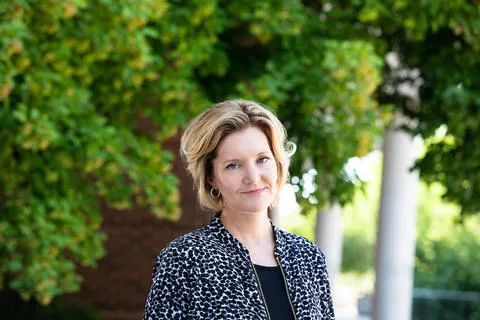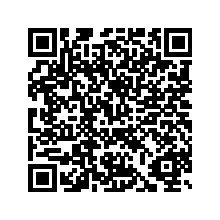Discovery at Carlson·07 Economic Anxiety and COVID-19

Economic Anxiety and COVID-19
Tuesday, November 17, 2020
Once the reality of the COVID-19 pandemic became clear, apprehension emerged as a dominant emotion for many Americans. Activities we long took for granted—grocery shopping, dining out, gym workouts—were suddenly tinged with uncertainty and even dread. That was unsettling. But the economic impacts that quickly followed were devastating. The stock market set a new record for a single-day plunge. Companies started mass layoffs and furloughs. And government mandates forced businesses deemed non-essential to shut down.
To borrow a now well-worn phrase, anxiety became the new normal, particularly when it came to individual finances. It’s not hard to see why. Staying calm is a challenge when you don’t if you’ll be laid off, if your company will survive, or if you can afford groceries.
Has the economic anxiety been worse for some individuals and groups more than others? That’s the central question Carlson School Professor Kathleen Vohs and colleagues explored in some recent research. The short answer: Yes. But the authors also discovered, other factors—individual personality traits, degrees of social connectedness, openness to experience, and more— helped determine who felt the most apprehension.

Kathleen Vohs, Land O'Lakes Chair in Marketing
Vohs and College of Liberal Arts Professors Frank Mann and Robert Krueger used a sample of more than 500 people from around the U.S. for the study. One key finding: Younger adults and families with children living at home reported the highest levels of anxiety. That’s not necessarily surprising, given the often-tenuous financial situations of many people in those groups. It’s normal to assume a 20-something working to pay off a heavy student debt load or a family with multiple young children would worry about a looming job loss—not to mention the difficulties of finding a new one in a suddenly unstable business environment.
As Vohs dug deeper into the research, however, other characteristics emerged. People who self-identified as neurotic or who had a perceived vulnerability to disease reported heightened unease. The same goes for individuals with low self-esteem, low conscientiousness, and a lack of openness to new experiences. Perhaps no major surprise there. But people whose social needs rely heavily on collective assembly—churches, clubs, and the like—also reported elevated levels of financial stress. While that might seem like an unusual correlation, the research points out that abruptly removing the sense of belonging people get from group gatherings could trigger feelings of a larger-scale societal breakdown—something that would almost certainly include serious economic upheaval.
And what about the people who were less concerned about the pandemic’s economic impact? The authors found that approximately 15 percent of adults had no anxiety at all, and 10 percent reported they were only “somewhat concerned” about a single financial hardship. Income played a key role with that individuals who made more than $75,000 per year were generally less anxious than people who earned less.
One final note: this research was published in July 2020, when the pandemic was still in its relatively early stages. With that in mind, she explains that it represents a snapshot in time, one that documents the impact of a still emerging and rapidly shifting situation. Later research could well produce different findings, although it’s hard to see that happening. While the stock market has mostly recovered, job losses and unemployment claims continue, and uncertainty continues to rule. In short, it’s safe to assume that economic anxiety—like COVID-19 itself—will persist as we near 2021.

新冠疫情与经济焦虑
2020年11月17日,星期二
新冠疫情的形势清晰之后,忧虑成为许多美国人最常见的情绪。买菜、外出就餐、去健身房,这些活动以往被视为理所当然的,却在突然间变得不确定、甚至可怕。这种状态实在使人不安。随之而来的经济影响更是毁灭性的。股市遭遇有史以来最大的单日暴跌。企业开始大规模解雇员工和放假。政府下达指令,非日常必需的企业不得营业。
借用一个常见的说法,焦虑已经成为新常态,尤其在个人财务方面。其原因不难理解。如果你不知道自己是否会失业、公司是否会倒闭、会不会连生活必需品都买不起,那么你很难保持冷静。
是否有一些个人和群体遭遇了比他人更严重的经济焦虑?这是Carlson School的Kathleen Vohs教授和同事们在近期研究中最重要的问题。简单来说:是。研究者们还发现,个人性格、社会联系、经验的开放性等要素都会影响忧虑水平。
Vohs教授和College of Liberal Arts的Frank Mann教授、Robert Krueger教授以500多名美国人作为样本展开了研究。他们发现,焦虑水平最高的人群是刚成年的年轻人、孩子还住在家里的家庭。这个结果并不出人意料,因为这些人群的财务状况向来脆弱。背负沉重学生贷款的20出头的年轻人、养着好几个小孩的家庭,在经济突然动荡时,他们当然会担心失去工作、担心找不到新工作。
随着研究的进一步深入,Vohs教授发现了其他的特征。自认为神经敏感或易感多病的人群,焦虑水平也很高。低自尊、缺乏责任心、对新事物的态度不够开放的人群同样如此。这也许也不令人惊讶。但是,高度依赖教堂、俱乐部等群体生活的人,同样表示经济压力上升。这一发现可能难以理解,但研究指出,突然剥夺人们对群体的归属感可能引发大规模社会崩溃的感受,而后者往往伴随严重的经济振荡。
在疫情中经济受影响较少的人群,表现如何呢?研究者发现,15%的成年人表示完全不焦虑,10%表示对经济困难只是“略有焦虑”。收入是一个关键要素,年收入在7.5万美元以上的人群,焦虑水平整体低于收入较低者。
需要注意的是,本项研究发表于2020年6月,当时疫情尚属早期。Vohs教授表示,该研究只反映当时的情况,记录了正在发生和快速发展的新冠疫情的影响。后续研究可能有不同的发现,但无法预测具体结果。目前股市已基本恢复,失业还在持续,不确定性依然是主流。简而言之,经济焦虑和新冠疫情一样,将会持续到2021年。



